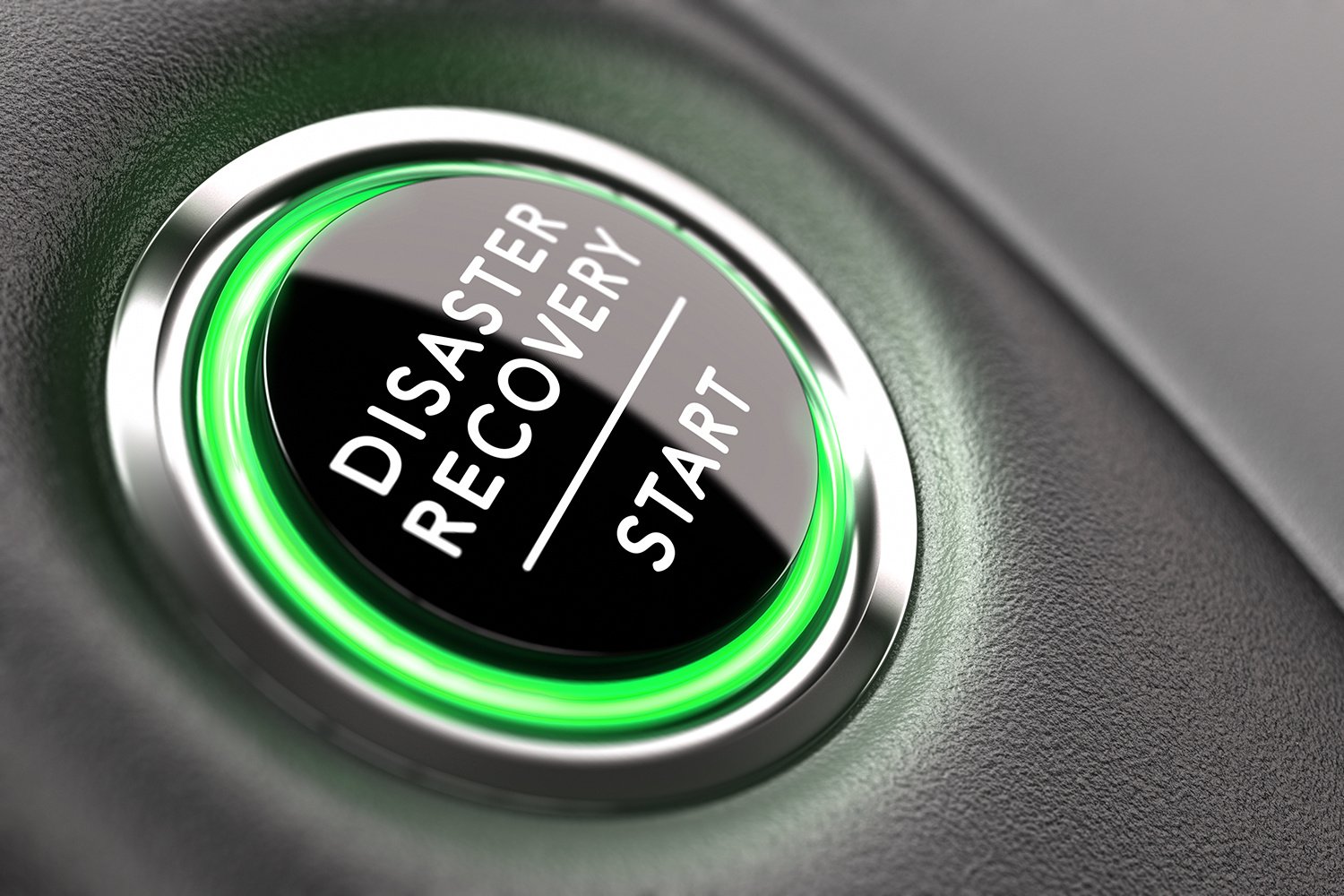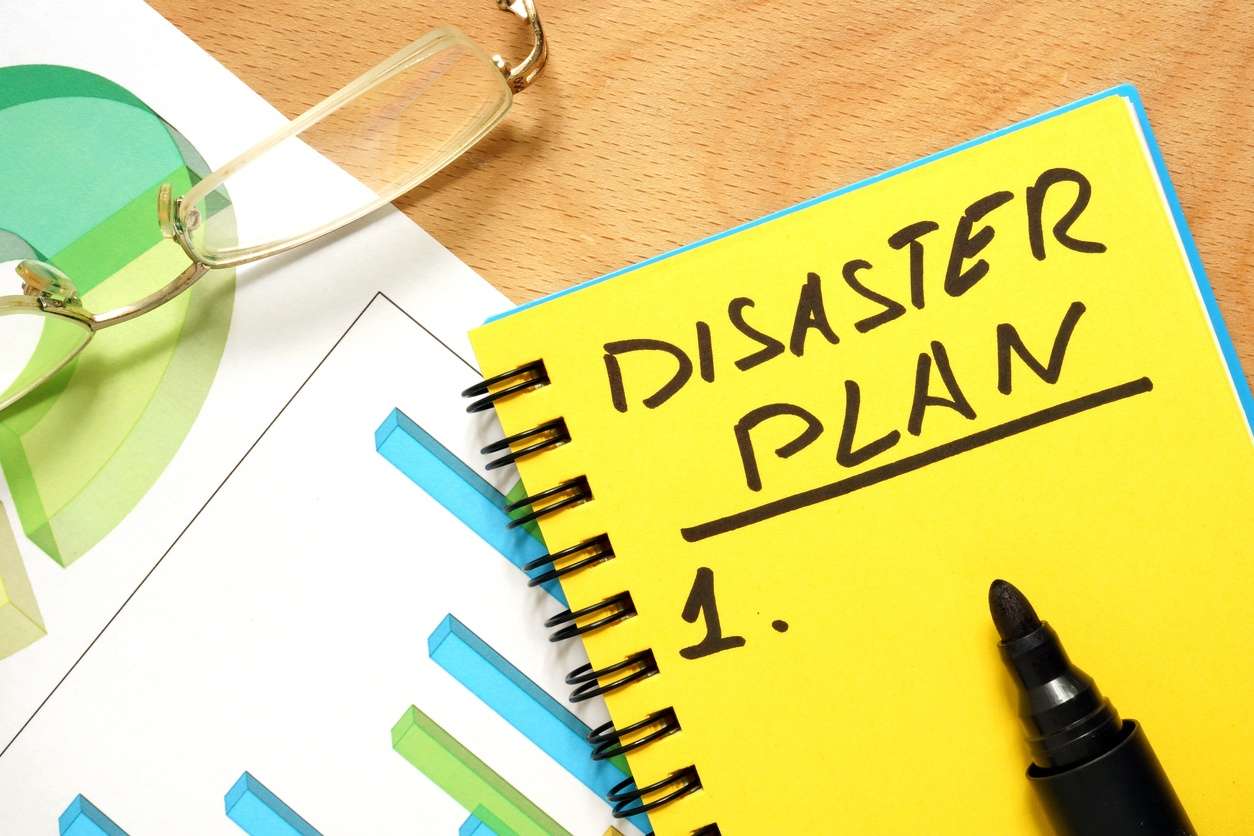Disasters can happen at any time, and when they do, it’s important to have a plan in place to ensure that your data is protected. Many businesses don’t have the resources or expertise to manage their own disaster recovery plan, which is where Managed Disaster Recovery Services come in. In this blog post, we will discuss what Managed Disaster Recovery Services are and how they can help your business protect its data in the event of a disaster.
With most applications now cloud-based software-as-a-service (SaaS), application software is not as vulnerable to disasters as it once was. While some application client software is susceptible, it is easily recovered.
Your data is a different story. Irreplaceable unique user data needs to be backed up and recovered as quickly as possible to avoid extended disruptions to the operation of the business.
Managed Disaster Recovery Services help your business recover its data and resident software quickly and efficiently, so you can get back to business as usual.
What are Managed Disaster Recovery Services, and what do they include?
Managed Disaster Recovery Services are a type of managed service that provides businesses with the resources and expertise they need to protect their data in the event of a disaster. Services typically include:
- 24/365 monitoring and management of your disaster recovery plan
- Rapid response to any disasters that occur
- Provisioning of backup and recovery services
- Training for your staff on how to use the backup and recovery services
- Assistance with data restoration in the event of a disaster
Managed Disaster Recovery helps businesses protect their data in the event of a disaster and can help reduce the downtime that a disaster would cause. For companies that cannot afford to lose data or cannot afford extended downtime, this is an invaluable service.
The benefits of using a managed service provider for disaster recovery.
There are many benefits to using an MSP for disaster recovery. Some of the key benefits include:
- Reduced downtime – Managed Service Providers have the resources and expertise to help businesses recover from a disaster quickly, reducing the amount of downtime caused by a disaster.
- Improved compliance – Managed Service Providers can help businesses improve their compliance with industry regulations and standards.
- Reduced costs – Managed Service Providers typically charge a flat rate for their services, which can be less expensive than hiring in-house staff to manage disaster recovery.
How to choose the right provider.
When choosing a Disaster Recovery Services MSP, it is important to consider the following factors:
- The size of your business
- The type of data you need to protect
- The budget you have available for disaster recovery
- The level of experience and expertise the provider has in managed disaster recovery services
- The provider’s track record for recovering data from disasters
- The provider’s customer service and support
Select an MSP that meets your business’s specific needs and has experience with all aspects of your IT infrastructure. Managed Disaster Recovery Services can be a lifesaver for companies that cannot afford to lose data. Choosing the right provider is essential for ensuring that your data is protected in the event of a disaster.
Questions to ask when considering an MSP.
When considering a Managed Disaster Recovery Services provider, it is essential to ask the following questions:
- What services does the provider offer?
- What experience and expertise does the provider have in Managed Disaster Recovery Services?
- What is the provider’s track record for recovering data from disasters?
- How much does the service cost?
- What are the provider’s terms and conditions?
- How is the service delivered (onsite, offsite, or a combination)?
- What are the provider’s availability hours?
- Is 24/365 monitoring and management of your disaster recovery plan included?
- What are their SLAs (Service Level Agreement)? Basically, how quickly do they react when disaster strikes?
- What training is provided for staff on using the backup and recovery services?
- What assistance is provided with data restoration in the event of a disaster?
The cost of disaster recovery services.
Disaster Recovery Services can be expensive, but the cost is worth it for businesses that cannot afford to lose data. The cost of Managed Disaster Recovery Services varies depending on the provider, so it is a good idea to shop around and compare prices before making a decision.
A Disaster Recovery Plan is an investment in protecting your business’s data. It is essential to make sure that you choose a provider that offers the services and support you need.
When considering a managed DR provider, keep in mind that the cost of not having a backup and recovery plan in place is much greater than the cost of Managed Disaster Recovery Services.
Data loss can be costly for businesses, both in terms of the money lost and the damage done to the business’s reputation. Managed DR can help companies protect their data and avoid these costs.
How to get the most out of your managed disaster recovery services agreement.
To get the most out of your agreement, you’ll want to be sure that the provider understands your business’s specific operation. The provider should work with you to create a disaster recovery plan that meets your business’s particular needs and is tailored to your budget.
It is also important to ensure that the provider has a good track record for recovering data from disasters. The provider should have experience dealing with all types of disasters, from natural disasters to data breaches.
The provider should also offer 24/365 monitoring and management of your disaster recovery plan. This will help ensure that your business’s data is protected around the clock.
In the event of a disaster, the provider should be able to respond quickly and help you get your business back up and running as soon as possible. The provider should also provide training for staff on how to use the backup and recovery services.
Finally, it is important to read the provider’s terms and conditions carefully before signing an agreement. This will help ensure that you are aware of all of the provider’s services and the costs associated with those services.
It is essential to choose a provider that can offer you the services and support you need. By asking the right questions and comparing prices, you can find the best provider for your business. Remember, the cost of Managed Disaster Recovery Services is well worth it for companies that cannot afford to lose data or experience extended downtime.
Your Managed Disaster Recovery Solutions from Cyber Advisors
The IT experts at Cyber Advisors collaborate with your stakeholders to create a recovery strategy that protects your data, meets your business goals, and is within your budget. Our solution begins with an on-premises network appliance that backs up your data, encrypting and replicating it in one or more safe remote locations.
FAQs
Q: What are Managed Disaster Recovery Services, and what do they include?
A: Managed Disaster Recovery Services are a type of managed service that provides businesses with the resources and expertise they need to protect their data in the event of a disaster. Services typically include:
- 24/365 monitoring and management of your disaster recovery plan
- Rapid response to any disasters that occur
- Provisioning of backup and recovery services
- Training for your staff on how to use the backup and recovery services
- Assistance with data restoration in the event of a disaster
Q: What are the benefits of using a managed service provider for disaster recovery?
A: There are many benefits to using an MSP for disaster recovery. Some of the key benefits include:
- Reduced downtime: Managed Service Providers have the resources and expertise to help businesses recover from a disaster quickly, reducing the downtime caused by a disaster.
- Improved compliance: Managed Service Providers can help businesses improve their compliance with industry regulations and standards.
- Reduced costs: Managed Service Providers typically charge a flat rate for their services, which can be less expensive than hiring in-house staff to manage disaster recovery.
Q: How do I choose the right Managed Disaster Recovery Services provider?
A: When choosing a Disaster Recovery Services MSP, it is important to consider factors such as:
- The size of your business
- The type of data you need to protect
- The budget you have available for disaster recovery
- The level of experience and expertise the provider has in managed disaster recovery services
- The provider’s track record for recovering data from disasters
- The provider’s customer service and support
Select an MSP that meets your business’s specific needs and has experience with all aspects of your IT infrastructure. Managed Disaster Recovery Services can be a lifesaver for companies that cannot afford to lose data.
Q: What questions should I ask when considering an MSP for Managed Disaster Recovery Services?
A: When considering a Managed Disaster Recovery Services provider, it is essential to ask the following questions:
- What services does the provider offer?
- What experience and expertise does the provider have in Managed Disaster Recovery Services?
- What is the provider’s track record for recovering data from disasters?
- How much does the service cost?
- What are the provider’s terms and conditions?
- How is the service delivered (onsite, offsite, or a combination)?
- What are the provider’s availability hours?
- Is 24/365 monitoring and management of your disaster recovery plan included?
- What are their SLAs (Service Level Agreement)? How quickly do they react when disaster strikes?
- What training is provided for staff on using the backup and recovery services?
- What assistance is provided with data restoration in the event of a disaster?
Q: How much do Managed Disaster Recovery Services cost?
A: Disaster Recovery Services can be expensive, but it is worth it for businesses that cannot afford to lose data. The cost of Managed Disaster Recovery Services varies depending on the provider, so it is a good idea to shop around and compare prices before making a decision.
Choosing a provider that offers the services and support you need is essential. You can find the best provider for your business by asking the right questions and comparing prices. Remember, Managed Disaster Recovery Services costs are well worth it for companies that cannot afford to lose data or experience extended downtime.




